Billy Coffey's Blog, page 37
September 24, 2012
Manhood and my son’s big toe

image courtesy of photobucket.com
“LOOK,” is what he said, but I was too busy looking to hear him. It was the way he’d come through the door—right leg extended outward, left leg bent at an angle, hopping like he’d been wounded in some sort of pitched battle.
I leaned forward on the sofa (the show I’d been watching, something about how ancient Romans used human urine imported from Portugal as mouthwash, now blessedly forgotten) and tried to see what had happened. Tried to see the blood, actually. Or a wound. Or, at the very least, some sort of bug that had somehow landed on my son’s foot between the car and the front door. But I saw none of these things.
He said it again—“LOOK.” Shooting his right foot out like the kicks he does in karate, the ones he swears are so fast that his toes break the sound barrier.
I leaned forward more. Still, nothing.
“What’m I looking at, bud?” I asked.
He wiggled his big toe, which wasn’t so big at all. It was an eight-year-old toe. There was dirt beneath the nail. At first, I thought that was what he wanted me to LOOK at.
“You need a shower,” I told him.
“No.” Then, “NO. Look at my toe, Dad.”
He wiggled it again.
“See?” he asked.
“Nuh-uh.”
A sigh then. It was the kind of exhale I’ve begun noticing has come more frequent from my children as they’ve grown older—part exasperation and part disappointment.
He placed his foot at the end of the sofa and motioned me closer. I followed his finger to the knuckle just behind the nail, where a thin, barely-there wisp of something had sprouted.
And in an awed whisper that was barely heard, he said these three words:
“It’s. A. Hair.”
No. Couldn’t be. Dirt, maybe. Actually, dirt most likely (it was the same dull brown color as the stuff under his toenail). I tried to rub it off. It stuck.
“I tried that,” he said. “Look.” He took the first and middle fingers of his right hand and pinched the spot, stretching it out. “See?”
I did.
“Do you know what that means?” he asked. “It means I did it. I’m a MAN.”
Then a smile—wide and tall and all teeth, the kind so big that his face didn’t seem able to hold it.
“Well, look there,” I told him.
I smiled back. Mine, I’ll confess, wasn’t so big. Oh, there were teeth. And if you’d ask him, I’m sure he’d say that smile was plenty tall and wide, too. But my face held it. It held it fine.
He went on then. My son may have been a man, but one not adverse to playing with his Legos after school. Me, I forgot about my television program. I just sat there thinking. Wondering.
I was like him once—a boy who often wished to be a man. Now I’m a man who often wishes to be a boy again. Such is life, I think, and for all of us. Always going to some far-off place that promises to be wonderful and perfect, only to arrive there and wish to be someplace else.
I guess I should have told him something like that, but I didn’t. I let him enjoy his moment. When your kids take another small step along that great and winding road of life, I think letting them enjoy it is best.
But later, I’m going to have him sit with me. I’m going to pat him on the leg and tousle his hair, and I’m going to tell him to always remember to slow down. To enjoy this moment, this day. Because there will come a tomorrow when he may look at those tiny hairs on his toes and think back to when they were naked, and I would have him remember those times well.

September 20, 2012
Check Engine
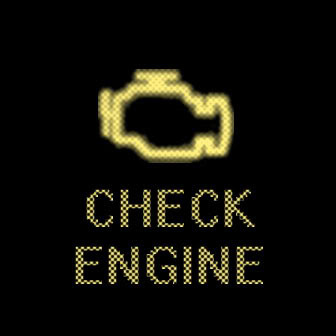
image courtesy of photobucket.com
It began like most problems do—small and sudden. One a drive down an empty two-lane road with windows open, stereo blaring, and me doing my best Kenny Chesney impersonation. Work was done, home was ahead, and I had raw meat, a hot grill, and a ballgame to look forward to. Yes, life was good.
But then a county police car rounded the curve ahead of me and I spotted the tell-tale radar jutting out from the driver’s side window. And whether you’re doing a hundred or twenty-five, your first reaction when you see such a sight is to slow down and check your speedometer. I did and did.
The good news was that I wasn’t speeding (much).
The bad news was that a red light was glowing on my dashboard.
CHECK ENGINE, it said.
I raised my sunglasses and squinted, hoping that the light was not a light at all. Maybe it was a reflection of the sun or a peculiar shadow. Maybe I was just seeing things.
But I wasn’t.
CHECK ENGINE.
I tapped the glass while keeping an eye on the road, but the light wouldn’t turn off. So I took the next logical step—I put my sunglasses back on, turned Kenny Chesney back up, and kept driving. Not simply so I could watch the road, but because I was trying to convince myself that if I wasn’t looking at the light, it wouldn’t be on.
Not so.
The modern motor vehicle is a technological wonder that can give you detailed information about a myriad of mechanical functions, but it cannot communicate more vaguely than CHECK ENGINE. Those two words of detached brevity can mean anything from a loose gas cap to a blown head gasket to nearly everything in between. So when I got home I paused to unscrew the gas cap, tighten it again, and restart my truck.
CHECK ENGINE.
I opened up a dusty filing cabinet in my head and ran through a list of possible causes: sticky EGR valve, pinched fuel injector, faulty oxygen sensor…
All of which required a trip to the local repair shop, about two hours of my time, and more than a few bucks to diagnose and fix. And even though the guys down at Eavers Tire are great to hang around and talk with, I could think of a few better ways to spend a Saturday morning.
So that’s where things stand as of now. I’m still driving my truck, and it will still clear it’s voice with a low chime and announce CHECK ENGINE every time I turn the ignition. And for the past two days it has even resorted to blinking at me. “Hellloo,” it mimes, “pay attention to me!”
But I don’t. Yesterday I resorted to covering that tiny part of my instrument panel with duct tape so I wouldn’t have to see it anymore. That didn’t work, either. I couldn’t see the light but I still saw the duct tape, and I knew why it was there.
A part of me still thinks the light will go away if I ignore it long enough. I should know better, yes. This isn’t the first time I’ve had to battle warning lights, and not just with my truck. With my life, too.
Like when I find myself choosing to stand in the rain rather than go looking for some sun. Or when my gaze begins to wander down instead of up. When I go for a bit without smiling or a long time without laughing. That’s when I know something’s wrong with my engine.
CHECK HEART, my brain says.
And I should. Really. But I often don’t. That sort of thing would be much like taking my truck into the shop—it would cost too much and take too much time. So I stumble on ignoring the fact that something somewhere inside me has tripped an alarm.
When paying no heed to that warning turns CHECK HEART into CHECKHEARTCHECKHEART, I’ll use a little duct tape on my soul, too. I’ll start thinking that the cure for my blues could be as simple as a movie night or a pint of Starbucks ice cream. Sometimes both.
That never works, though. Because the duct tape I use to cover what’s wrong inside me is much like the duct tape I use to cover what’s wrong inside my truck.
Both peel off eventually.

September 17, 2012
Defending the right to offend
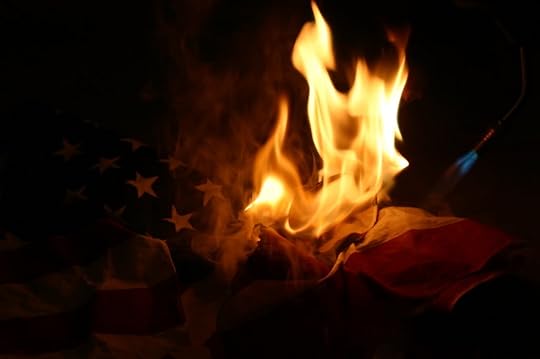
image courtesy of photobucket.com
So all of this mess, every bit of it, is because someone took offense. That’s what the television and newspapers say. That the demonstrations and the riots, the rocket propelled grenades and the two embassies that lay in rubble—the dead—is because of a movie no one has seen. Because someone somewhere just so happened to click on some link that led to some website, and that someone showed someone else, and so on and so on, until (as these things so often do) the world is lit afire.
So they say.
It is rare that I use this space to rant and rail. Whether the object of my frustration is politics or culture or this dark world in general, I usually keep it to myself. The internet is full enough of loud people who yell and cuss and blame. If there is a prideful bone in me, it is that my tiny corner of cyberspace is free of such things. It is instead a place where you and I can gather and sit a spell. Where we can speak as friends and be well met.
This post may be an exception to that.
If the events in the Middle East this past week have shown me anything, it’s that the world is mired in a culture of offense. One that apparently has reached new heights. Because to hear the media and the government explain things, the fault lies not with the people who destroyed our embassies and paraded the dead body of our ambassador, but with some guy who made a movie. And to perhaps emphasize this point, there is talk that this filmmaker may soon face federal charges.
As someone who sees the first amendment as the vehicle for a good portion of his livelihood, hearing things like this makes me nervous. And angry. More and more, writers and artists are being governed by some perverted version of the Hippocratic Oath. Instead of First, do no harm, it is First, do not offend. Say the wrong thing, and at best you will be set upon with a relentlessness that will not yield until you have been pummeled into an apology. At worst, you will be charged with having blood on your hands.
Watch what you say, in other words. Especially now. Because sticks and stones may break our bones, but words can get you branded as a hate monger or an infidel or, worst of all, insensitive.
Like you, I haven’t seen this movie. Also like you, I have no plans to do so. A person’s faith is the most sacred thing in his life, and it should be respected. What this man did was wrong, it was stupid, it was mean, but I defend his right to do it. And lest anyone think such a thing is easy for a guy like me to say, let me remind you that I’m a white Southern conservative Christian male who spends most of his week in a blue collar job at a liberal college. Trust me, folks—something offends me about every five minutes.
My point to this rant is simple, spoken best by another Virginian some two hundred years ago—we are endowed by our Creator with certain unalienable rights. First among these is the right to stand up and speak out in whatever way we believe right. Whether that way lifts up the world or drags it down doesn’t really matter, not here. Because the right to free speech cannot be at peace with the right to never be offended.

September 10, 2012
Four rules
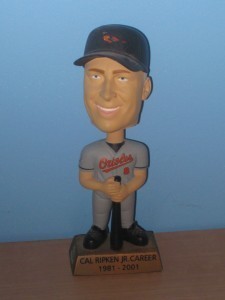
image courtesy of photobucket.com
I’m usually good for one awful, please-God-kill-me bout of sickness per year, but the last time I actually threw up was Christmas Eve 1995. I am of the opinion that there is no worse feeling in this life than when…that…happens. I’ve heard people say they’re not feeling well and wished they would just go ahead and do it, as if the after would be worth the during. They lie. Throwing up helps no one.
I remember that last time because of the irony involved. Christmas has always been my favorite time of year—of joyful blessing and peace on earth and Hosanna in the Highest—and yet there I was in the bathroom with my head against the porcelain god saying “This can’t be happening this can’tbe happening thiscan’tbehappen—”
And then it did.
Just so you know, it was horrible. Merry Christmas to me.
That was the day I vowed to never throw up again. I didn’t know exactly how much of a say I had in that, but I thought I’d give it a shot. It’s been tough a few times. I’ve had flu and strep and colds and infections and viruses. I’ve had moments of thiscan’tbehappen—. But I am proud to say that as of today, my streak is unbroken.
I’m proud of that. I’m the Cal Ripken of not puking.
Just in case you’re interested, I’ll tell you how such an impressive feat is accomplished. It certainly isn’t something as mundane as a proper diet (my breakfast this morning? Deer jerky, a bowl of Frankenberry, and coffee). No, I’ve kept my streak through more esoteric measures.
Not puking is a mental thing. A mindset. But it’s also following a few commonsense steps when things go from good to uh-oh.
Like step one: pay attention. Be mindful of that little flutter in your gut. Stop what you’re doing and take stock. It may be a fluke, yes. But it may be something more, also. I’m convinced the vast majority of puking happens when people fail to heed the warning signs and only act when it’s too late.
If it isn’t a fluke and it really may be something more, then it’s on to step two: breathe. Nice, deep, even breaths into and then out the nose. Never through the mouth. I cannot emphasize this point enough. The last thing you want to be doing at that moment is opening your mouth.
Once your breathing is under control, you can move to your thoughts. That’s step three. The mind is an amazing creation, and whatever goes on in there affects the rest of you. Start thinking about peaceful things—mountains and flowers people laughing. Don’t think about oceans, though—too wavy. And for the love of all that is holy and good, don’t think about what might happen. That will ruin everything.
If you’re at step three and still feeling like the wave is building and the end is nigh, it’s time for step four: pray. Pray hard. Steps one through three have failed me through the years, but step four never has. God has always been my Pepto-Bismol.
I say all this because I was sick last week. Not please-God-kill-me sick, but more like you’d-better-slow-down sick. And even though things didn’t progress into a downward spiral of almost-yarking, I decided to follow the above guidelines anyway.
And you know what? It worked.
I’m thinking now of expanding those four rules and including them on the days I feel fine, too. No use to waste them when I’m sick.
I’m going to pay attention more. And when things start going from good to uh-oh, I’m going to stop and breathe.
I’m going to keep the good in my thoughts and not dwell on the bad.
And I’m going to pray. More and always.

When the monsters reached out

image courtesy of photobucket.com
I was a pretty good kid, more or less. Aside from breaking my arm by falling out of a tree when I was eight and thus ruining our family vacation to Busch Gardens, I only once heard my parents utter anything resembling What are we going to do with that boy?
That one time wasn’t when I fell out of the tree, though. It was when I decided to finally do something about my monster.
My monster was twelve feet tall and covered with green slimy skin. Four sharp horns, three gray and one black, jutted out from its forehead (I can’t tell you how many times those horns nearly impaled me). But it was its breath that was the worst—fiery and pungent, as if it had neither eaten nor brushed its teeth in a very long time. That was where I came in. I just didn’t know whether it wanted to eat me or use me as a monster toothbrush.
It lived in the dark recesses beneath my bed, which made sleep impossible. At night I could hear it moving around down there, stalking me. All attempts at prayer seemed useless. So did my attempts to get my parents to look for it. Parents can never see anything.
So in a fit of sleepless desperation, I took matters into my own hands one night and tucked my cap gun under my pillow. Sometime around midnight—breakfast time for my monster—it began stirring. I counted to a hundred and prayed, then leaped down onto the floor and fired off six shots beneath the bed.
I didn’t know if I’d managed to wound it or, even better, kill it outright. But I did succeed in scaring my parents half to death.
They came running (staggering, really, since it was the middle of the night). After threats of everything from grounding to eternal damnation, they finally looked under the bed. Didn’t see anything, of course. But I thought I spotted monster blood in the carpet.
Whether I had winged it or killed it or simply scared it away, my monster left me alone after that. All the monsters did, really (there was one in my closet and one in the crawlspace of the house, too). I found out what those monsters were really—a clump of toys, clothes that I didn’t hang up, the rumblings of an old furnace. Knowledge goes a long way in battling monsters.
That small but important fact proved itself true over and over again as I grew. There were no monsters, just reasons.
Today, September 10, marks the eleventh anniversary of the last day I believed that. Because the next day was September 11, 2001. The day I learned the truth.
There really were monsters in this world.
They didn’t have slimy skin or horns or fiery, pungent breath. But they wanted to kill me just as much.
Maybe more.
I sat on the edge of my bed that day for seven straight hours. Watched as the towers fell and the Pentagon burned. Watched as a plane when down in a Pennsylvania field. And I remember looking down at my hands sometime that afternoon and finding a picture of my first child’s sonogram in them. I’m still not sure how it got there, but I still know what I was thinking. I was thinking about the world my daughter was about to be born into, one that had just turned a darker shade of black.
That was one day I swore to myself I would never forget. Not just what happened, but what I felt while it was happening. And I haven’t. I remember it all.
It was a horrible day. And I guess like most horrible days, the temptation is to move on. To let the past be the past and look to the future.
I suppose that sort of thinking accounts for a lot of what’s going on nowadays. I won’t get into that. All you have to do is turn on the news. It’s everywhere.
But me, I still choose to remember. I’ll let the past be the past. I’ll look to the future. But I’ll still cast a wayward glance behind me while I’m walking on. I’ll still remember that day. Because that’s the day the monsters reached out and grabbed us all.
And that’s the day I vowed that my children wouldn’t just be raised to believe in them, but to fight them as well.

September 6, 2012
Cleaning up the world

image courtesy of photobucket.com
To work at a college is to have the opportunity to live your life in reverse. To see yourself as the person you used to be. True for me, anyway. I listen to their stories and hear their dreams and realize both sound familiar. They’re much the same as mine were, once upon a time.
There is a sense of determination among them, an anticipation. It’s almost palpable. They’re at that golden age in life when they’re both informed of the happenings of the world and determined to do something about them. And though the thousand or so students here differ in beliefs and opinions, they are united in this one important sense:
They are all convinced the world needs a good cleaning up.
Many more than you might think are here for simply that reason. They’re learning and preparing to go forth into the dark lands outside these ivory walls and do some good. To clean up. They see The Way Things Are and believe theirs is the generation who will put a stop to it all.
But there’s much they can do while they’re here, too. There are clubs and protests and candlelight vigils for everything from tolerance to global warming to ending the wars in Iraq and Afghanistan. They write articles for the school newspaper on equality. Each of these activities are undertaken with a sense of excitement and passion you’d expect to find in young adults. They’re fighting the good fight and smiling as they go.
That was me once. I was never one for clubs and protests and candlelight vigils, but I did write articles. And I did believe the world needed a good cleaning up. Believed I was the sort of person to do it, too. I had all the excitement and passion in the world behind me to push me ahead. I promised myself that things would be better one day and that my generation would be the ones to thank for it.
It’s funny what people believe when they’re young. How that excitement and passion is the result of a blind expectation rooted not in reality, but in the idealistic dreams of youth.
You, dear reader, know this. I’m sure of it. Because like me, you likely once thought much the same. But the big dreams we sometimes have tend to shrink as time wears on. Where they once lifted us up in possibility, they soon begin to weigh us down in doubt. We may know of the world at twenty, but we cannot fathom it. Not yet. That comes later, when job and family and responsibility appear. When getting ahead is narrowed into getting by. And we see then for the first time this horrible truth—things are too big for us. We are not the stalwart captains of hope and change we once believed we were; our determination instead resides in surviving this day to face the next.
We no longer wish to change the world. All we want is to make sure the world doesn’t change us. That would be enough. We don’t like thinking we’ll lose in this life, even if winning seems unfeasible. Fighting to a draw, then, is the best we think we can do.
That’s what I think about when I see these students every day. About how their passion will be tempered against the hardness of a world they can only flirt with and not yet love. I wonder how kind the coming years will be to them, what they will lose and then gain from the loss.
And through it all they will be nagged by the very notion that still nags you and me, the notion that the world does indeed need a good cleaning up. We’re all right in believing that. Where they’re wrong now and I was wrong once is believing that cleaning should begin at the upper reaches of our society and drip down onto everyone else. I don’t believe that to be true. Not anymore.
Because now I know better. Now I know that if I ever want to help clean up the world, I have to start by cleaning up myself.

September 3, 2012
The walking dead
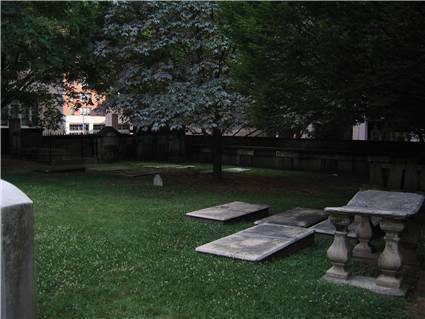
image courtesy of photobucket.com
Last Saturday I donned my best suit and tie and drove to the local funeral home, where I faced the unenviable task of expressing condolences to a family suffering through the worst kind of pain: the death of the man who was both husband and father.
Funeral homes rank just below hospitals as Worst Places I Want to Visit, and it’s still a pretty close race.
The reasons weren’t all that obvious. I knew what was waiting for me on the other side of this world, knew that however much suffering and pain involved in getting there was worth the price, and knew that, in the end, everything would be just fine.
I didn’t like funeral homes because I was afraid of death. I was mournful of the pain the dead left behind. Like the pain felt by the wife left to tend to her family, the children left to mourn their lost innocence, and the parents who were burying their son. Parents who once found comfort in knowing they would pass first through the thin veil between this world and the next, but who were now left with the hard-won knowledge that it’s often the things we most take for granted in life that disappoint us in the end.
Standing in front of the open casket, I pondered who this person was. Son and brother. Soldier. Factory worker. Known to his family as Sweetheart and Dad, Lover and Best Friend. Lived a good life. Was a good man.
“It was so sudden, wasn’t it?” sobbed a stranger beside me.
I nodded to her. She was right. He left for the grocery store and offered a quick “Be back soon” to his family, but what came back was merely the earthen vessel I was looking down upon. One moment here, the next gone.
I moved on to others who represented a small portion of his friends and family, engaging myself in the polite and hushed conversations that funeral homes require. Small talk, mostly. Weather and crops first, which merged into recollections of the deceased second, which moved on to the sadness last.
Each exchange brought a variation of the sobbing woman beside me had said moments before.
“It was so sudden,” she had said.
Echoed by others as:
“He passed so quickly.”
“He died far too young.”
“There was no warning.”
I listened to them all, keeping my answers brief. A Yes to the question of “Horrible, isn’t it?” A nod to “Such a shame.”
A shame, yes. Unfortunate and horrible. But as I looked upon the solemn faces of the gathered, I realized there was far worse shame and misfortune in this life. Far worse horrors.
Should the quickness of a death that must come to us all be cause for added grief? Perhaps. But perhaps it would do us all well to remember that the next moment is never guaranteed. And perhaps it would do us all well to know there is a death worse than what I experienced in that room. One that does not strike with speed, but numbness.
Far worse than the buried dead are those who have perished and yet still walk. Those who have yielded to the crushing weight of the world, who have surrendered their hopes and dreams to the arid winds of despair. Who have seen too much darkness and so surrendered their light, believing it to be too faint to matter.
That life must simply be endured is among the worst of lies. We are not merely to tolerate this world, but overcome it. We are called not to plod on, but to laugh and skip.
God commands us not to guard our hearts, but to give them freely. To feel pain instead of ignoring it, if only so that pain can turn to greater joy. To face our struggles with steeled eyes and iron will. To take the arrows of circumstance in our chests, marching forward, and not our backs in retreat.
This is our duty. Our charge. And to fail is to fail both ourselves and our God. It is to meet the end before our ending. That is the worst death. Not the one that robs the body of its soul, but the heart of its passion.

August 30, 2012
When God hates you

I’m sharing My Hazardous Faith Story as part of a synchroblog connected with the release of Ed Cyzewski and Derek Cooper’s new book Hazardous: Committing to the Cost of Following Jesus.
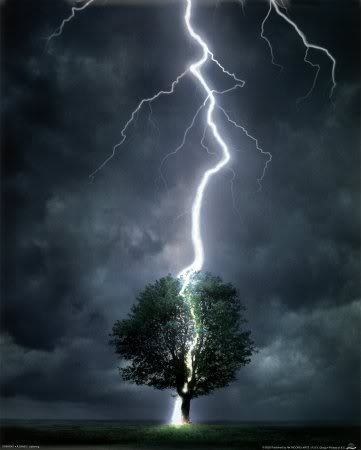
image courtesy of photobucket.com
She stared at me, jaw straight and chin high, and said the three words. I stood there looking back at her, my jaw not so straight and my chin normal, not exactly knowing what to say other than to ask her to say it again. In a slow cadence that enunciated perfectly each of the three syllables, she repeated—“God. Hates. Me.”
“God hates you because your mail isn’t here?” I asked.
“Yes. If He wanted, He could make sure it got here. It’s not here. So God hates me.”
It was the sort of logic I’ve gotten accustomed to here at work, a place full of higher learning and lower thinking. And I had no doubt the student in front of me really didn’t mean what she said. She was angry. Frustrated. Down.
“You know the mail’s backed up,” I told her. “The hurricane and all.”
“Didn’t God make the hurricane?”
“Doesn’t the atmosphere or something make the hurricane? Something about the air off the coast of Africa?”
“Doesn’t God make the air off the coast of Africa?”
I could see where this was going.
“I don’t think God hates you,” I said. “The U.S. Postal Service, maybe. But not God.”
My attempt at levity did little to resolve the situation. She grunted and walked off. I told her to check back again tomorrow. She said she would if God hadn’t killed her by then.
That was yesterday. I didn’t see her today—I’m assuming God hasn’t killed her—which is good, considering her mail still hasn’t arrived. I’m still of the opinion that she was kidding about the whole God-hating-her thing, assuming she knows a little about God. You don’t need a lot of knowledge about the Higher Things to know He doesn’t hate anyone, that God is love.
But still.
There have been times when I’ve caught myself thinking that same sort of thing. Maybe not that God hates me, but certainly that He’s ignoring me. That He’s more concerned with keeping the universe expanding and the world turning than little old me. I suppose that’s not as bad as thinking He hates me. I guess it isn’t much better, either.
Aren’t we all at times like that, though? So much of life is fill-in-the-blank. Things are going badly because _________. Often what we give as our answer is more pessimism than optimism. We hurt and we take sick, we fall on hard times, not because others have done so since time immemorial, but because God hates us.
A few months ago, I got the chance to observe a professional jeweler polish silver. The process charmed me. He walked me through the entire process. The secret, he said, was heat. A good silversmith knows just how hot to get the silver before it is molded. Too hot, and it’s ruined. Too cool, and it spoils. The piece he was polishing? Perfect. Just enough heat.
I think God is like that with us. We’re made for better things—Higher Things—than to simply exist. We must be good for something. We must be molded in a fire neither too hot nor too cool. We are all pieces of silver in the Jeweler’s hand.
It is true this world is cracked and made for suffering. But it is also true that by suffering, we are made to heal what cracks we can.
God does not hate us, He simply loves us too much to fill our lives with ease.
One final thing about that jeweler. He told me he’d been sitting there for hours shining that piece of silver. That fact seemed a bit pointless to me. I couldn’t imagine it shining any brighter. I asked him how he would know when it had been polished enough.
“The silver faces the fire,” he said, “but it isn’t done. Then it is molded and polished, but it still isn’t done. The silver is only done when it casts the Jeweler’s reflection.”
Yes.
***
Do you have your own Hazardous Faith Story? You can share it here:My Hazardous Faith Story.

August 27, 2012
Wanting more
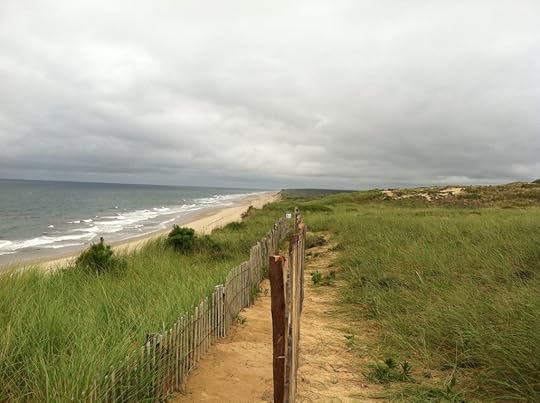
image courtesy of photobucket.com
I’ve read that when it comes to compensation, benefits, work environment, and time off, college professors have the best job in the United States. And since I spend so much of my workday around them, I can’t argue with that assertion. The ones at the college where I work seem happy, are productive members of their community, and have enough extra time on their hands to string together words no one understands to publish books no one reads.
Still, I was curious. Did these people know they had the fortune and blessing to have the nation’s best job? That all of their hard work had paid off to get them the lifestyle of a lifetime? I wasn’t sure. And to me, it felt like something they should know if they didn’t. So I took a few days and asked around.
Two math, one music, three English, a history, and four philosophy professors later, and I was convinced of two things. One was that they knew exactly how blessed they were to have their particular occupation. The other was that it didn’t matter.
Because while all eleven enjoyed their work and got plenty out of it, in their heart of hearts they would still rather be doing something else.
One math professor expressed a lifelong desire for crab fishing, and the other just wanted to run off to Bora Bora. The history professor admitted that she’d always wanted to open a florist shop. Two of the philosophy professors wanted to be farmers, and the other two missionaries. All three English professors wanted to be famous authors rather than ignored ones. And the music professor? “I’ve always wanted to be a bounty hunter,” all one hundred and twenty pounds of him said. (And it’s okay to laugh at that. Because I did).
Those little confessions didn’t surprise me.
Despite what we say about being happy with where and who we are, deep down we’re never where we should be. No matter how hard we chase after our bliss, it always remains just a few steps ahead. Close enough to see, almost close enough to touch, but not quite. There to both inspire us to keep going and taunt us because we haven’t gone far enough.
Psychologists say this difficulty in finding what makes us happy is inborn. As much a part of us as the desire to love and be loved. I want to disagree with that and say that faith can bring us both happiness and a sense of place in this world, but the truth? I have faith, have a sense of happiness and place, but there are still many times when I look at my happy life and think there’s more out there. More happiness. More better.
Whether this makes me any less of a Christian is something I haven’t figured out yet.
There’s a lot to be said for being content with what you have, a sentiment echoed by people from the Apostle Paul (“I’ve learned to be content in whatever circumstances I am”) to Thoreau (“A man is rich in proportion to the number of things he can afford to let alone”) to a country song I heard on my way into work this morning (“…I look around at what everyone has, and I forget about all I’ve got…”).
Wise words, all. And true. Yet here I sit, still wanting more anyway. More dreams, more happiness, more peace.
I suppose we’re all stricken with wanderlust. Deep down we’re all explorers who cannot rest until we reach the next horizon, if only to see what’s there and what’s beyond. The ocean we’re all adrift upon is vast, it’s waters deep, and it’s wonders breathtaking. And though we sail onward, ever searching, our spirits whisper this truth:
We are meant to sail upon the waters of another ocean, where the seas are calm and the winds are fair. And that our happiness now is but a shadow of the happiness that awaits.

August 23, 2012
Love bears all things
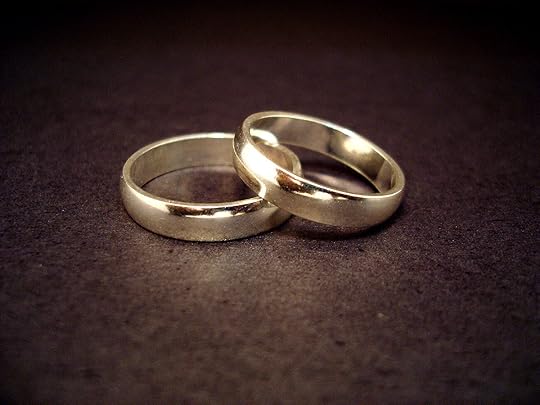
image courtesy of photobucket.com
Love has always intrigued me as one of those divine aspects of life that is both fleeting and permanent, fragile and strong. For thousands of years Poets and philosophers have tried to define it, but to no avail. You can’t speak about love and get it just right. You have to see it in action to really know what it is.
Which is why I can appreciate the spectacle of a fine wedding.
I’m sitting in a church pew on a bright Sunday afternoon looking very James Bondish in a suit and tie. Because what I expect to see in the next fifteen minutes or so is not just a marriage ceremony, not just candles and pretty music and maids all in a row, but true love made visible.
The groom stands at the front of the church, hands folded in front of his cummerbund. He is not nervous, this man. There are no pre-wedding jitters or thoughts of a quick escape through the side door. No, he knows exactly what he’s doing. Not marrying this woman never crossed his mind.
The organist launches into a fevered rendition of “Here Comes the Bride,” and the gathered stand and turn to face the opening doors. A beaming bride and her proud father make their way down the aisle.
Hand in hand. Not just out of love, but out of necessity.
The father passes off his princess to her prince, and the two stand facing one another. I’m sure they have spent many moments over the past weeks staring into each other’s eyes, wrestling in their own way with the prospect of this moment. And though they are surrounded by God and a few hundred friends and family, I can tell that to them no one else exists. The world has been shut out and the door barred.
There is just them and nothing else. For now, anyway.
The preacher begins the standard reading of 1 Corinthians 13. I wonder how many times I’ve heard that scripture read. How many times those words have skidded over the surface of my heart but not really plunged to its core.
Love is patient, love is kind…
They’ve known one another for about four years now, this bride and groom. About a year and a half ago over a nice dinner picnic in the park, he pulled out a diamond ring along with the potato salad. Marry me, he asked. Yes! she answered.
…love does not brag and is not arrogant…
That their love was pure and true was unquestioned. God had crafted them as the only two pieces of a beautiful puzzle. It was cliché, yes, but true—they completed one another.
Both knew they didn’t deserve such happiness. But both praised God daily for allowing them to have it. And now that they had found each other, they would be together always.
…bears all things, believes all things, hopes all things…
When you’re in love, everything seems possible. There are no sudden bends in the road ahead, no ruts to fall into. There are only clear paths and sunny skies. Whatever darkness your life was under is now bathed in sunny skies.
And it’s true. Everything is possible.
Not just the good. The bad, too.
When the bride began suffering headaches a few months ago, the doctors told her it was likely migraines. Don’t worry, they said. Just the stress of planning a wedding. When they continued despite medication, tests were ordered. Don’t worry, they said. Just a precaution.
She worried anyway. Her fiancée did what any man would do for the woman he loves. He comforted her, held her, and told her everything would be okay. After all, their love was meant to be. He busied her with thoughts of caterers and flowers, but he busied himself with that same worry.
A few days later, they both sat numb as the doctor informed her of the cancer eating away her brain.
…endures all things…
After the tears and the confusion and the silence, the two talked. How could this be? How can God let this happen? What can we do now?
They had no answer to those first two questions, but they knew what to do about the third. They would marry. They would celebrate their lives together as long as they could. Their love would endure.
It must. Because as I watch them staring into one another’s eyes, my attention returns to the words of the preacher. He is finishing his scripture reading, and I whisper to myself the last three words he speaks to them:
“Love never fails…”
Yes.
Here this bride and groom stand, in front of God and two hundred people, testifying to those three words. They are true love made manifest. And we are all witnesses.
And now, so are you.




